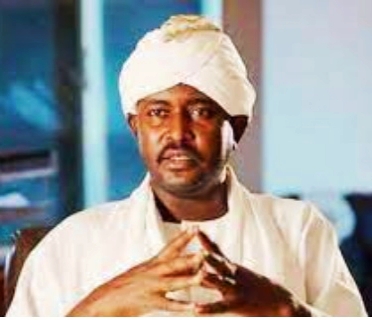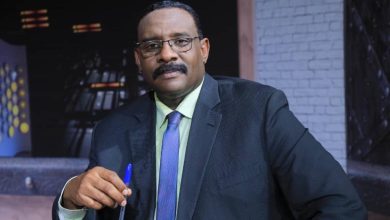Can US Solutions and Geneva Call stop the War in Sudan?

Al-Sadiq Al-Rezeiqi
The Sudanese government and representatives of the Sudanese army SAF will not go to Geneva peace negotiations proposed by the Americans on August 14 to discuss how to stop the fighting and issues of delivering humanitarian aid.
It seems that the Sudanese attitude- expressed by the President of the Sovereignty Council TSC and Commander of the SAF , Lt. Gen. Abdel Fattah Al-Burhan, more than once recently – and the response from the Sudanese Ministry of Foreign Affairs to the written invitation letter sent by US Secretary of State Anthony Blinken, have cut off every orator’s words.
Opening a Parallel Platform :
Reading attitudes on Sudan is no longer based on speculation and assumptions. The Sudanese authorities have determined their opinion and dealt with the American proposal as if it were plowing the sea, considering the proposed Geneva round to offer nothing if the known demands and conditions that must be implemented are not met before it, as agreed upon in Jeddah in July 2023, by withdrawing the Rapid Support Forces RSF from the homes of citizens, dignitaries and government facilities, and withdrawing from the cities.
The question about this call for negotiations between the Sudanese government and the national army with the Rapid Support Forces RSF is: What do international parties such as the United States of America USA and other regional parties want from putting forward this proposal? And at this time?
To answer this question, we must know what is behind the hill, and remove the dark fog that covered the American call for a round of negotiations in Geneva, weeks after another American call, which was launched publicly, in which it called on the Sudanese government and the SAF to continue negotiating with the leaders of the Rapid Support Forces RSF through Jeddah platform, and the Saudi Deputy Foreign Minister visited Sudan a few weeks ago to discuss resuming negotiations under the supervision of the joint American-Saudi mediation.
It is no secret that the Sudanese issue and its settlement have become an electoral card for the Biden administration and the Democratic Party, which is fighting its fiercest electoral battles against a stubborn opponent, the Republican Party candidate, former President Donald Trump, and the current administration and Kamala Harris, Vice President – the candidate of necessity – are devoid of any external successes that would help them in their election campaign.
The Sudanese crisis and the deadly war that is taking place have become a billboard on which the US administration wants to hang its election announcement, and regional parties want to join the US chorus, adopt the idea of a new negotiating platform, exchange US efforts and proposals for campaign financing, and motivate the campaign of aspiring candidate Kamala Harris to score an early goal. It is no secret that the US administration responded to repeated requests from some regional countries to involve them in any upcoming settlement in Sudan, and to integrate them into the joint mediation at the Jeddah platform.
When Sudan categorically rejected this, these countries encouraged the Americans to open a parallel platform, bypass Jeddah negotiating platform, expand mediation, propose different formulas for observers and new partners, and create a negotiating path that eliminates what came before it, achieves the goals of returning the Rapid Support Forces RSF to the political scene and accepting them again in the Sudanese political arena, and recycle and produce the “Taqddum ” Civil Forces Coordination to lead the political process after stopping the war.
A complicated Crisis :
In this regard, American-regional diplomatic contacts and movements took place in several directions, the result of which was that Jeddah negotiating platform, the IGAD initiative, in which Sudan froze its membership, the African Union initiative, and the Sudan Neighboring Countries initiative called for by Cairo, did not succeed in curbing the Sudanese war, and the winds of these initiatives blew against the wishes of some countries supporting the Rapid Support Forces RSF and the “Taqddum ” parties.
It is not a mistake that the goal of the call for negotiations in Geneva is to get rid of previous commitments in Jeddah platform, and to overcome the pressure on the Rapid Support Forces RSF and oblige them to what was agreed upon in Jeddah in July 2023.
Sudan rejected this American invitation and did not participate in it; to prevent circumventing what was done in Jeddah or opening a new negotiating platform in Geneva, and starting from scratch.
It can be said that Washington fell into a tight trap by leading the call for negotiations in Geneva, without taking into account the sensitivities of the internal situation in Sudan, its relations in the region, and its indifference to the reaction of the most important component in the current situation in Sudan, which is the SAF that currently runs the country and is waging a war funded and supported from abroad.
It is difficult to achieve peace, conclude an agreement, or begin making settlement arrangements and generating solutions to the crisis and stopping the war, without the participation of the Sudanese government, and the SAF agreeing to it and participating in its preparations and following its precise details, especially with regard to the partners in mediation, who are the observers and what is their role? What is the agenda and topics of the negotiations? And what is the fate of Jeddah decisions?
In light of all this data, it can be said that the United States is suffering from a complicated crisis in its assessments and view of the situation inside Sudan, and the developments of the field war in all its details, addition to its lack of understanding of the degree and extent of the stormy political and social interactions witnessed by a country like Sudan after the war, and the displacement of nearly twenty million of its citizens outside their lands and homes, distributed between displacement and asylum, and their exposure to the most heinous types of violations and war crimes, and an entire people is suffering from a harsh humanitarian crisis and extremely complicate political situations.
Some official circles in Washington know that the American relationship and fixed policy towards Sudan are completely different from what is currently proposed in the context of initiatives and negotiating platforms, and the American agenda and its requirements do not meet with the agenda of others from the African space, or the regional environment represented by some countries involved in the Sudan war.
If the US policy in dealing with Sudan during the past decades was based on the necessity of creating stability, reaping the results of its repercussions on the Horn of Africa and sub-Saharan Africa regions, and viewing Sudan as the main partner in combating terrorism and resolving the problem of illegal immigration, then US policy has declined due to poor judgment and weak assessment, even though Sudan’s strategic importance and its role in the region and its arrangements have not declined.
Thorny Dossiers :
Here, the dossiers appear thorny and cannot be resolved without strengthening a direct and productive relationship with the Sudanese state institutions, most importantly the armed forces SAF and coordination and cooperation for a stable and strong government capable of dealing with the facts of reality and dealing with internal and regional issues.
From here, the divergence of paths becomes clear between what the United States US wants and what regional parties supporting the war in Sudan are seeking, with an agenda that does not lead to the stability of this country or the achievement of peace or make Sudan an effective element in the process of combating terrorism and illegal immigration.
All of this confirms that the call for a negotiating track in Geneva is merely an attempt to wave an electoral card and use it during the current campaign in the remaining hundred days before the American voter goes to the ballot boxes.
In this context, no planned visit by the US Special Envoy to Sudan, Tom Perriello, since his appointment to the interim capital, Port Sudan, has succeeded.
Ceremonial and security disputes have emerged as an obstacle to arranging the US envoy’s visit and his meeting with the President of the Sovereignty Council TSC and other Sudanese officials.
The US administration has not shown any tact or sound vision to overcome the current state of its relations with Sudan and the army leadership.
More than one US diplomatic official in the East African region has indicated that US policy, diplomatic relations and its view of Sudan during the period before and after the war were not successful and did not succeed in reading the situation correctly.
A US ambassador to one of the East African countries said at a diplomatic ceremony last month: “
We must review the mistakes that led to the events in Sudan and seek an urgent settlement and pay attention to our real interests before this country goes into the unknown,” while US diplomats were active in Addis Ababa to meet with Sudanese and African parties to re-evaluate the situation in Sudan and the prospects for possible solutions.
Whatever the case, the chances of the proposed negotiation round succeeding or not depend on the participation of the Sudanese government and representatives of the army, as there is no hope for the success of this negotiation round if this most important party does not participate.
As for Egypt, which has begun to move to contain any regional moves to intervene in Sudan, it is not enthusiastic enough to support Geneva round, despite not declaring its opposition to it, while international parties, such as Russia, China, Turkey, and other African countries, believe that the solutions proposed by the Americans regarding Sudan are neither fattening nor satisfying.



